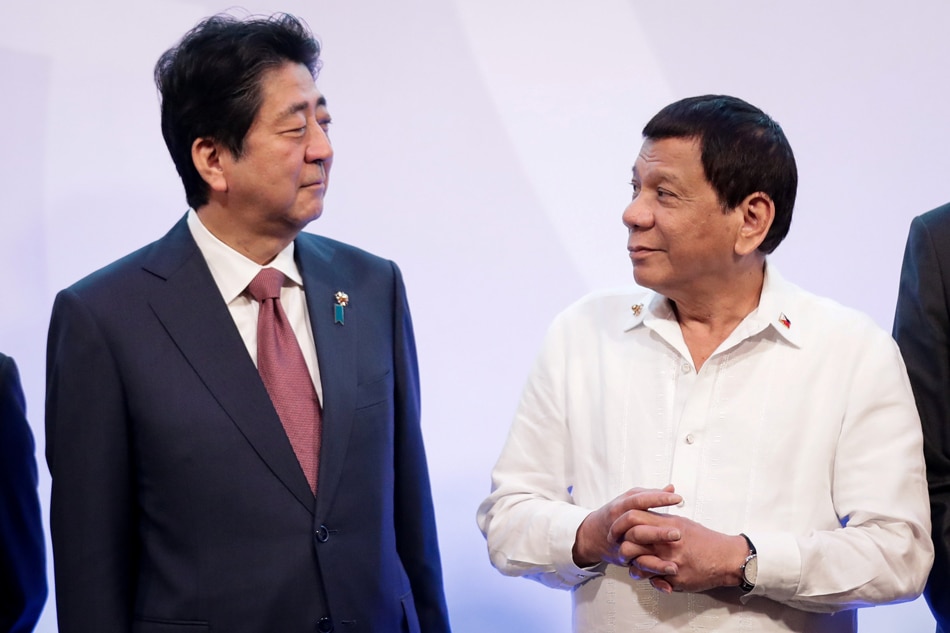by Argyll Cyrus Geducos, MB
President Ferdinand “Bongbong” Marcos Jr. has expressed his gratitude to the Japanese government for its continued support for the Philippines’ infrastructure development, saying the country’s first-ever subway system in particular would help improve the quality of life of Filipinos in the city.

Marcos said this as he witnessed the contract signing of Contract Package 102 (CP102) – Quezon Avenue Station and Contract Package 103 (CP103) – Anonas and Camp Aguinaldo Stations of the Metro Manila Subway Project (MMSP) in Malacañang on Thursday, Nov. 3.
“I thank the Government of Japan for partnering with the Philippines in pursuing this important infrastructure development project,” the President said in his speech.
“We thank you for your continued support, and I hope to further advance our cooperation in other areas for the mutual benefit of our peoples,” he added.
Marcos noted that the world recognizes Japan for having a very efficient rail transport system “which the Philippines aspires to one day emulate.”
The Metro Manila Subway will be the Philippines’ first underground railway system with a total length of 33 kilometers with 17 stations running from Valenzuela City to the FTI-Bicutan in Parañaque City, with a line connecting to the Ninoy Aquino International Airport (NAIA) Terminal 3 in Pasay City.
ADVERTISEMENT
Once fully operational, it can accommodate around 519,000 passengers daily and significantly reduce travel time between Quezon City to NAIA from 90 minutes to 35 minutes.
Dubbed the “Crown Jewel” of the country’s mass transit system, the Department of Transportation (DOTr) said the MMSP could generate over 18,000 jobs during its construction and boost economic activity in nearby areas apart from creating business opportunities once completed.
Funding assistance for the MMSP is from the Government of Japan through the Japan International Cooperation Agency (JICA).
In his speech, the Chief Executive particularly thanked JICA for the financial support and for working closely with the Philippine government in ensuring the completion of these contract packages and other projects.
“I don’t believe that, especially in terms of our infrastructure projects and even in our agricultural projects, we would have come this far without the help of JICA along the way,” Marcos said.
“It has been instrumental, and we have many possible future projects that, maybe, in the pipeline, and for that, once again, we thank JICA for their assistance and continuing interest in the Philippines,” he added.
“We are honored to have you as partners in making the Philippines’ transport operations more efficient, safer, and more reliable,” Marcos continued.
Improved quality of life
Meanwhile, Marcos said the signing of the contract packages clearly demonstrates his administration’s commitment to pursuing big infrastructure projects that will foster growth and revitalize the economy.
“We owe it to the Filipino people to build major roads and critical infrastructure that will not only spur progress and social change but also promote interconnectivity, ease traffic and reduce travel time,” he said.
“Let me assure [you] that the government remains dedicated to maximizing its resources to pursue even more ambitious endeavors that will bring comfort and progress to Filipinos all over the country.
The President said the subway project would improve the quality of life of Filipinos in the metropolis.
“We will reduce the terrible stories that we hear of people who no longer see their children because they come home at 1:30 in the morning, and the children are asleep; they have to wake up at 4 in the morning to get back on the bus to fight with the traffic coming back to work,” Marcos said.
“The subway and all our public transport systems will be able to help and to remedy… so the quality of life in the city should improve significantly,” he added.
